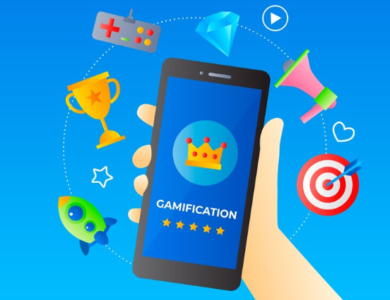The Evolution and Impact of Gaming Applications: From Casual Fun to High-Stakes

In the contemporary digital landscape, gaming applications have grown exponentially, carving out a niche in almost every smartphone and touching the lives of millions worldwide. These applications range from simple, addictive games meant to pass the time to sophisticated platforms that host multiplayer gaming and high-stakes betting. In this in-depth exploration, we’ll look at the evolution of gaming apps, their broad impact on culture and technology, and delve into the complexities of bet app, highlighting their positive contributions amidst a landscape often criticized for fostering addiction.
The Rise of Gaming Applications
Gaming applications have become a ubiquitous part of modern digital life, offering a broad range of genres and experiences to cater to diverse tastes and preferences. Initially limited to basic puzzles and arcade games, the gaming app market has expanded to include everything from deeply engaging role-playing games (RPGs) to educational games that offer skill enhancement in a fun format.
The accessibility of smartphones has propelled this growth, allowing users of all ages to download and enjoy games at their convenience, anywhere and anytime. This has not only democratized gaming but also opened up new avenues for game developers to innovate and capture niche markets.
Cultural Influence of Mobile Gaming
Mobile gaming has significantly influenced global pop culture, creating icons, jargon, and trends that resonate across different demographics. Games like “Candy Crush,” “Clash of Clans,” and “Pokémon Go” have transcended the boundaries of the digital world to impact retail, entertainment, and even social interactions. They have also introduced a new form of social interaction, where players collaborate, compete, and communicate in virtual environments, building communities that span the globe.
Educational and Therapeutic Applications
Beyond entertainment, gaming apps have ventured into educational and therapeutic arenas, providing platforms that aid in learning languages, practicing mathematical skills, or even improving mental health. These applications use gamification techniques to make learning engaging and retention-effective, proving especially useful in educational settings where traditional methods may fall short.
Therapeutic gaming applications have also gained prominence, designed to help users manage stress, anxiety, and more severe conditions like PTSD. These apps often incorporate elements of cognitive behavioral therapy (CBT), mindfulness, and problem-solving strategies to help users cope with various mental health issues.
Exploring the World of Betting Apps
Betting apps represent a significant sector within the gaming industry, blending the thrill of gambling with the convenience and technology of smartphones. These applications allow users to bet on sports, play casino games, and participate in lotteries from their devices.
Positive Aspects of Betting Apps
Betting apps have several positive aspects that contribute substantially to their popularity. They provide a controlled environment where users can engage in betting activities with set limits, helping to promote responsible gambling. These apps often offer features such as time-outs and self-exclusion, which are crucial for maintaining gambling within safe boundaries.
From an economic perspective, betting apps generate considerable revenue that supports not only the tech industry but also contributes to local economies through licensing fees, taxes, and job creation. Moreover, they bring the excitement of a casino or a sportsbook right to the user’s fingertips, offering convenience and a wide array of betting options that are not always available in physical locations.
Challenges Facing Gaming Applications
Despite their many benefits, gaming applications face significant challenges, particularly in the realms of data privacy, cybersecurity, and ethical design. Issues such as data breaches, addiction, and the use of manipulative design strategies to increase user engagement are prevalent concerns that developers and regulators need to address.
The Future Trajectory of Gaming Apps
Looking ahead, the future of gaming applications appears robust, driven by advancements in technology such as artificial intelligence (AI), virtual reality (VR), and augmented reality (AR). These technologies promise to make gaming more immersive and personalized, potentially transforming how we understand and interact with digital environments.
Conclusion
Gaming applications have evolved from simple pastimes to complex platforms that influence many aspects of modern life. They entertain, educate, and connect us, offering both significant opportunities and challenges. As the industry continues to grow and evolve, the integration of ethical practices and robust security measures will be crucial in ensuring that gaming applications continue to enhance, rather than detract from, the quality of our digital lives. Whether it’s through casual gaming to unwind or engaging in the strategic intricacies of betting apps, these platforms are integral to the digital experience, shaping interactions and entertainment for users around the world.



